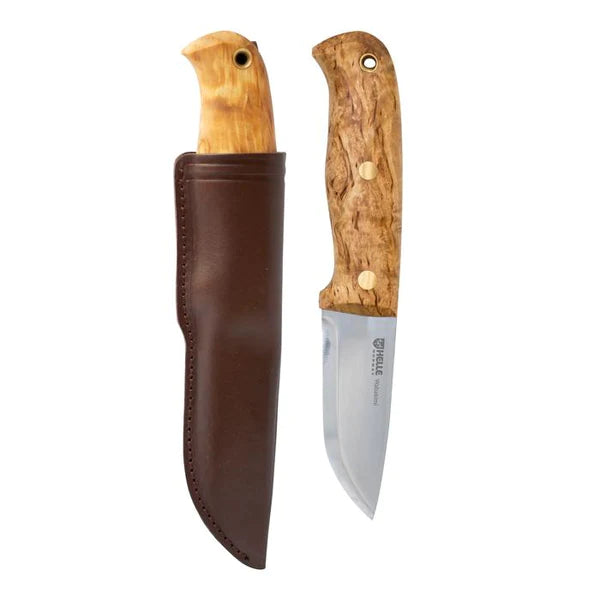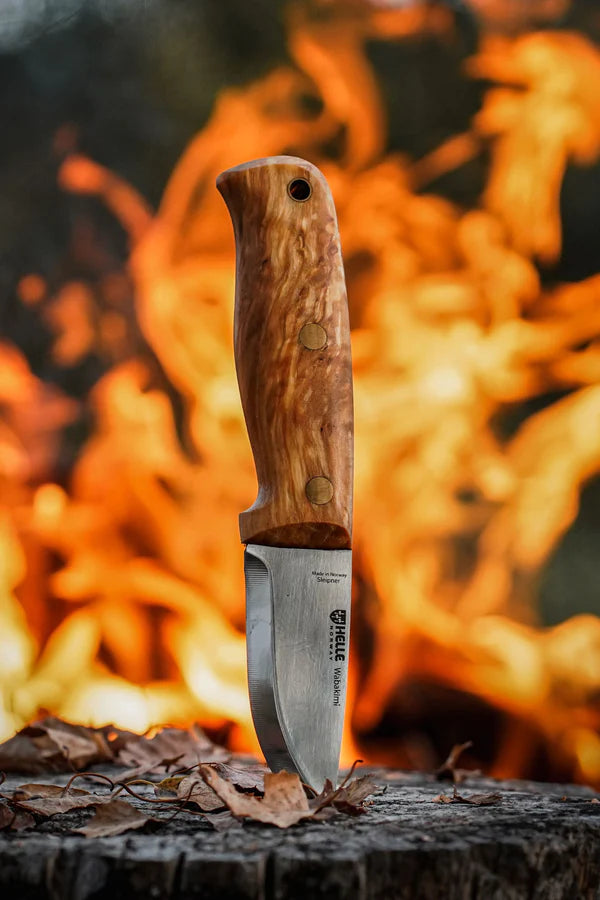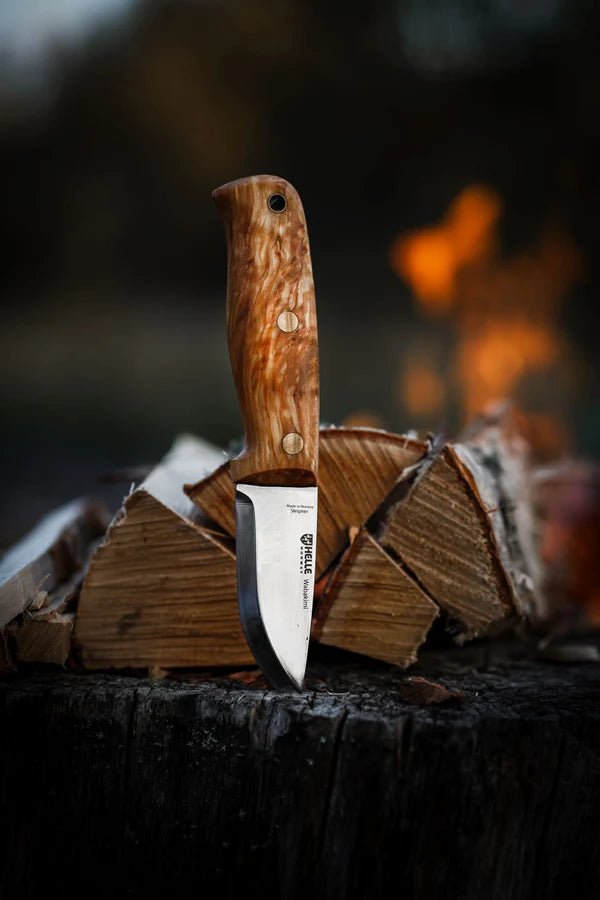Sleipner is a high-alloy tool steel developed by Uddeholm that offers a good balance between toughness and edge retention. As such it fits well in a small knife that will see a lot of use for a variety of purposes.
The Wabakimi is such a knife. Developed as the last of our line of knives with Les Stroud, it combines the knowledge of knife use of a true outdoorsman and the history and craftsmanship in the Helle team to make a knife that is short and stocky in the best of ways.
The Wabakimi comes with a half-full tang construction, where the blade steel is visible all along the spine of the handle, but not towards the fingers. This makes the knife better to use in the cold climates in the far north. It also gives the knife extra strength, thanks to the thick and solid construction from the full length tang. The spine works well as a striker for ferro rods.
The rich birch handle is hand sanded to its final shape and given a beautiful satin finish. The smooth and rounded shape makes it a perfect tool for long and hard work, without giving any hotspots. The tang is held in place by two thick brass rivets and a pipe rivet in the back.
The knife comes in a classic leather sheath for belt carry.
As a tool steel knife, the knife will rust if exposed to water or humidity over time. Wipe down and re-oil after use.
| Specifications |
Wabakimi - Sleipner |
| Weight |
135 g / 4.76 oz |
| Blade material |
Uddeholm Sleipner |
| Blade thickness |
3,1 mm / 0.122 inch |
| Blade length |
80 mm / 3.14 inches |
| Blade construction |
Full tang (Full length and ¾ wide) |
| Handle material |
Curly birch |
| Handle length |
115 mm / 4.51 inches |
| Sheath material |
Genuine leather |
| Design by |
Les Stroud & Helle |
| Design year |
2018/2023 |
The Wabakimi is the third and last addition in the line of knives designed in collaboration with Les Stroud (AKA Survivorman) – a collaboration that developed through years to become a close friendship. Much thanks to the shared love for the outdoors and to continued joy in creating good products.
The Wabakimi takes its name from the area where Les and his partner spent a full year living off the land and in tune with nature.










